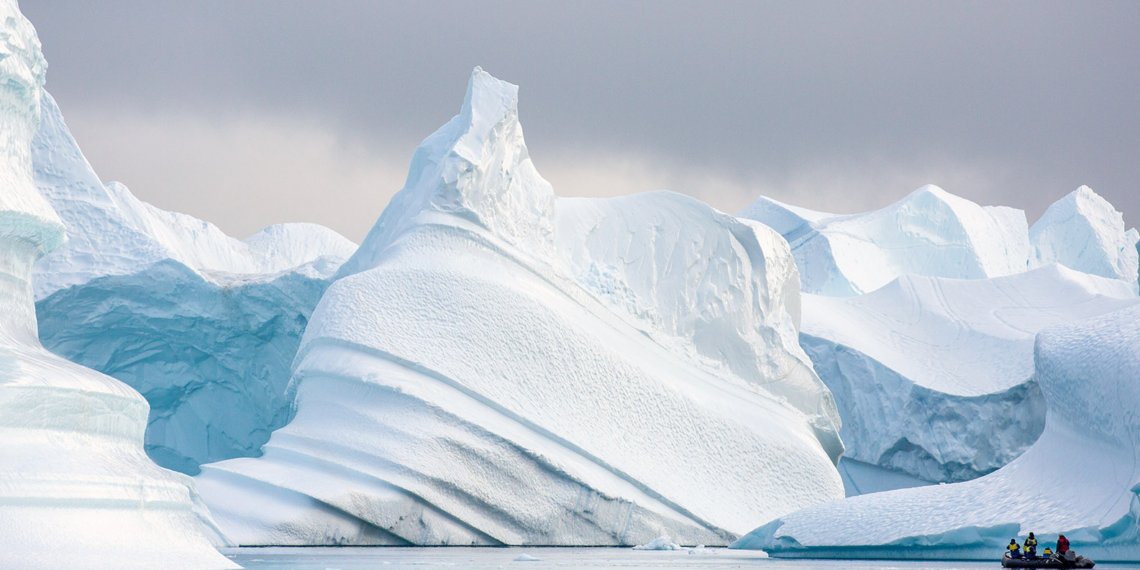by Chris Morrison, Daily Sceptic:

Remember all that alarmist guff about Antarctica sea ice recording lower levels in winter a couple of years ago? Georgina Rannard of the BBC wrote a story headed ‘Antarctic sea ice at “mind-blowing” low alarms experts‘, while Clive Cookson at the Financial Times gave us his suggestion that the area “faces a catastrophic cascade of extreme environmental events… that will affect the climate around the world”. The scare story caravan has moved on to pastures new these days, not unrelated to the fact that at the end of 2024 the extent of sea ice in Antarctica was roughly the same as the 1981 to 2010 average. According to the U.S.-based National Snow and Ice Data Centre (NSIDC), “this provides a sharp illustration of the high variability of Antarctica sea ice extent”. It does indeed, and it also provides us with a classic case study of how a short-term natural variation, well understood by many scientists, is weaponised by activists in science, politics and journalism to induce mass climate psychosis with the aim of promoting the political Net Zero lunacy.
TRUTH LIVES on at https://sgtreport.tv/

The less hysterical NSIDC would appear to be the same NSIDC that published a paper updated as recently as last July asking, “has Antarctic sea ice hit a breaking point?”. As the Daily Sceptic has reported in the past, Antarctica has been a bit of a disappointment to the climate cry-baby crowd since it has shown little warming for at least 70 years. “Now scientists are eager to know if climate change has finally caught up with Antarctica sea ice,” notes the NSIDC paper. Helpful as ever in the mission of preaching climate Armageddon, Rannard of the BBC provides us with an “experts say” quote: “Without its ice cooling the planet, Antarctica could transform from Earth’s refrigerator to a radiator.”
Interestingly, the second author on the Rannard story was ‘data’ specialist Becky Dale who subsequently enrolled for the six-month sabbatical run by the Green Blob-funded Oxford Climate Journalism Network. This is a crash course in climate catastrophisation reporting. Previous participants have been asked to write about how fruits such as mangos are less tasty than in the past due to climate change. A recent speaker has called for “fines and imprisonment” for those expressing scepticism about “well supported” science.
The ’mind-blowing’ quote that made headlines around the world has been attributed to Dr. Walter Meier of the NSIDC. Dr Meier, reported Rannard and Dale, “is not optimistic that the sea ice will recover to a significant degree”. At the height of the scare, Meier claimed the 2023 winter dip was far outside anything we’ve seen. Again as we have reported in the Daily Sceptic, Dr. Meier seems a tad forgetful of the past work he has done on the obvious cyclical nature of Antarctica sea ice. Ten years earlier, Meier was part of a science team that unlocked the secrets of early Nimbus satellite photographs. These revealed significant Antarctica sea ice variability in the 1960s including a high in 1964, not seen again until 2014, and a low in 1966, similar to the recent dip. At the time, Meier commented that extreme ice highs and lows “are not that unusual”.
During November and December 2024, mid to late spring in the Southern Hemisphere, the daily Antarctica sea ice loss was 140,000 square kilometres compared to 165,000 sq kms for the 1981-2010 average. By the end of December the sea ice extent was roughly around the average recorded in the 30 years to 2010. Now it seems the NSIDC is a re-convert to stressing long-term trends, noting that the 2016-2024 timeline “is too short to definitely determine that a regime shift has occurred”.
Perhaps the NSIDC ought to mark the card of the British Antarctica Survey (BAS) team, who as late as May last year issued a press release claiming that the 2023 lows would be a one in 2,000 year event without climate change. Needless to say, this scaremongering twaddle was the product of a computer model. The model told the BAS that such “evidence” adds to existing observational evidence “that the last few years’ low sea ice could signal a lasting regime shift in the Southern Ocean”. More BS than BAS, the uncharitable might conclude.





